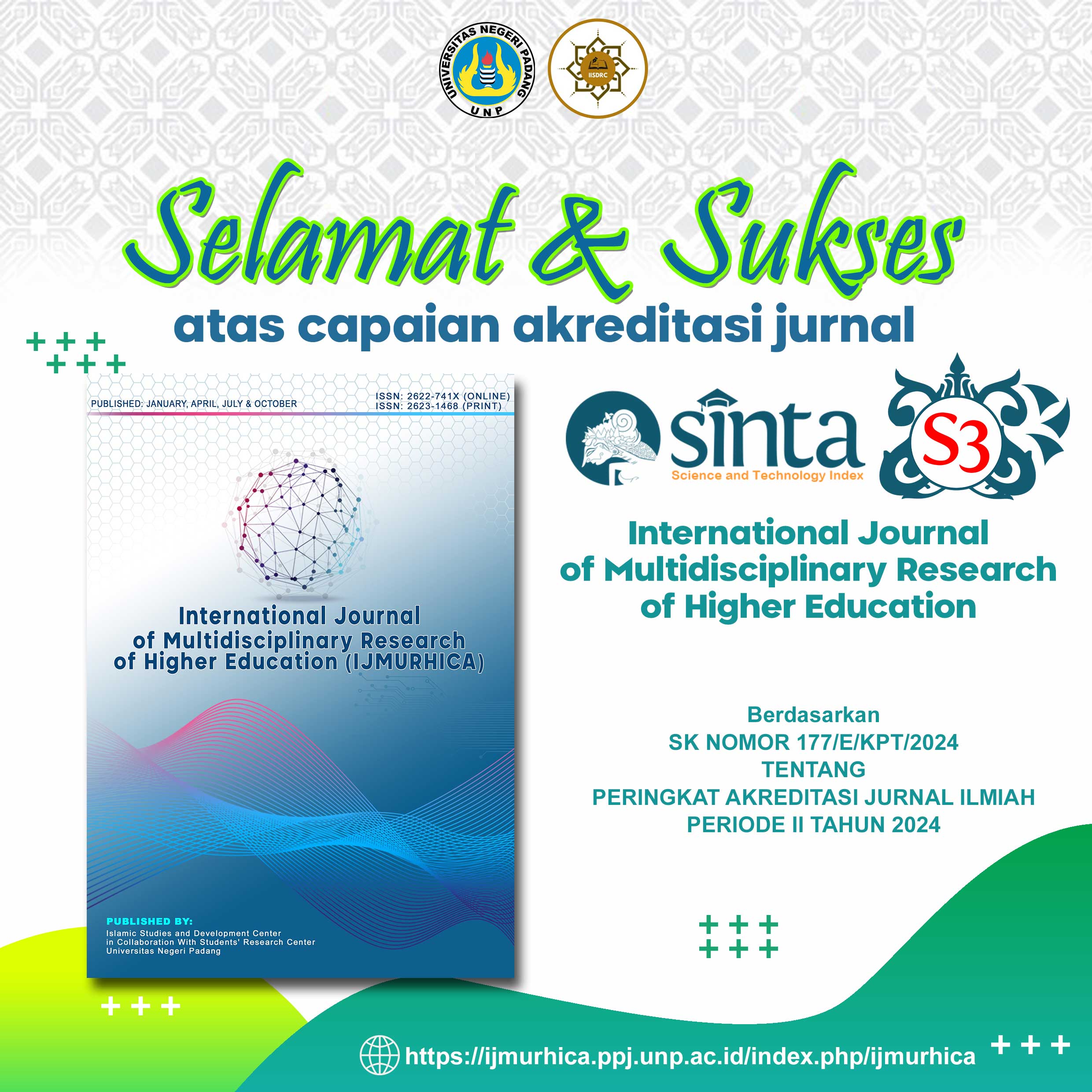Female Agency in Suzanne Collins’ The Hunger Games (2008)
DOI:
https://doi.org/10.24036/ijmurhica.v7i4.240Keywords:
Female agency, power, womenAbstract
The study aims to contribute to the understanding of female agency in literary works and its significance in the broader societal context. This study examines how Suzanne Collins' 2008 novel, The Hunger Games, addresses female autonomy. This study adopts a descriptive research approach. The data collection technique employed in this research is observation, conducted by reading the text of The Hunger Games by Suzanne Collins (2008). Furthermore, the data analysis technique utilized in this study is thematic analysis. Thematic analysis is used to identify patterns and overarching themes within the novel. The steps of this research include familiarizing oneself with the novel’s text, generating initial codes, identifying themes, reviewing and naming themes, and presenting the analysis results. The study extracts data from the text and contextual elements, employing known theories to decipher the novel's layers of meaning. The findings offer a multidimensional view of how The Hunger Games empowers its female characters within the fabric of agency against societal inequalities. Additionally, through a qualitative inquiry informed by Freudian theory, the study enriches scholarly discourse on self-injury behavior in literature, providing insights into human nature and the relevance of psychological theory in understanding literary representations of the human condition.
Downloads
Downloads
Published
How to Cite
Issue
Section
License
Copyright (c) 2024 Leni Marlina, Delvi Wahyuni, Fauzul Aufa, Ridha Hasnul Ulya, Elviza M. Z

This work is licensed under a Creative Commons Attribution-ShareAlike 4.0 International License.






